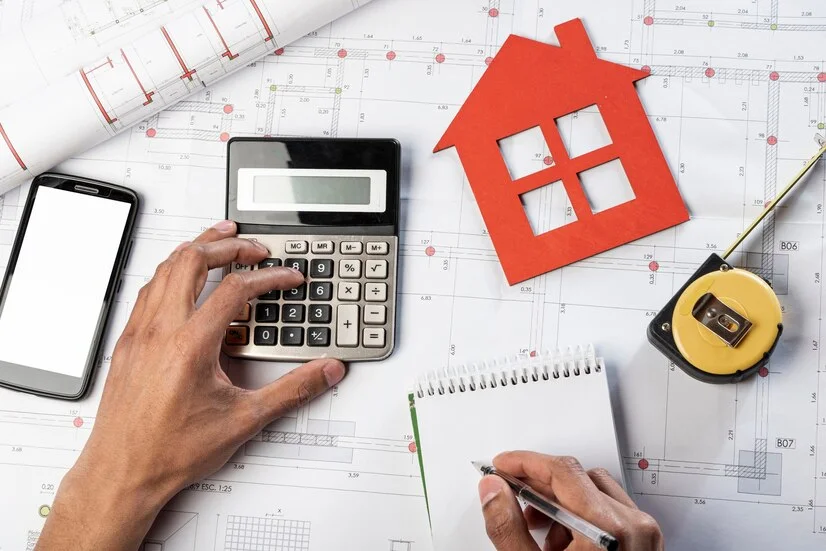Role of Credit History in Home Loan Approval and Interest Rates

A house-buying endeavor requires a significant investment from the lender as well as the buyer. As a buyer, you commit to maintaining your new house and paying back your mortgage by the loan terms. By giving you a sizable upfront payment, the lender is taking a risk on the assumption that you will repay it with interest.
Lenders consider many variables when determining whether or not to lend money to a person or group of people. The borrower's credit score and credit history are among those variables. Please find out more about how to maximize your credit history and how important it is when applying for a mortgage.
What does a Credit History mean?
Your credit history provides an overview of your financial and loan usage patterns over time. Typically, the following is included in your credit history:
- The number of credit accounts or loans that you own: Current open accounts as well as terminated accounts are part of your credit history. Credit cards that have been cancelled or loans that have been paid off are examples of closed accounts.
- The total amount due on every account: The amount you owe on each account is also reflected in your credit history.
- The kinds of accounts that you own: There are two main types of loans: revolving and installment. Student, vehicle, and personal loans are examples of installment loans. Revolving loans are frequently exemplified by credit cards.
- Your history of payments: Your credit history will include information on your timely payments, late payments, and missed payments. Your credit history will also show any loans you have that were charged off or went into collections.
A credit report contains the data that constitutes your credit history. Credit reports are assembled by three bureaus. The accuracy of your credit history may be impacted by what is reported by one bureau but not by another. Your credit report will include information on your credit history and loan accounts, as well as personal details like your Social Security number, birth date, and current and past addresses.
How your credit history is used by lenders?
Your credit history is examined by lenders to see how you have historically handled loans and money. A lender has little information if you have a very short credit history or none at all. They have no means of knowing if there's a good chance you won't make your loan payments on time or if defaulting on it is highly likely.
A lender may be more willing to approve your loan application if you have a track record of making your loan payments on schedule and a variety of loan accounts. When deciding how to proceed with you, lenders also consider the amount you owe. They may be reluctant to extend you further credit if you have a lot of outstanding debt. In addition to granting your mortgage, a lender may offer you a reduced interest rate or allow you to take out a larger loan if you have a good payment history and less debt at the moment.
How important is your credit score?
Your credit score is a three-digit figure that ranges from 300 to 900 and is mostly determined by your credit history. Your credit score is crucial if you're interested in obtaining a mortgage because it provides a lender with an overview of your financial and loan management history. Generally speaking, you'll get better mortgage terms the higher your score is.
Your credit score is influenced by some aspects of your credit history more than others. Typically, your final score is based on the following five factors:
- Payment History: At 35% of the total score, your payment history has the largest influence on your score. That makes sense since a lender could be reluctant to grant a loan to someone who consistently defaults on payments or makes late payments.
- Pending Amount: Your current loan balance, which makes up 30% of your score, also has a significant effect. Lenders are likely to be wary of making a loan to someone who is already heavily indebted.
- Length of History: While history length only makes up 15% of your score overall, the longer your credit history, the better. It might be wise to apply for your first credit card or take out another kind of loan when you're still relatively young, just in case you decide to apply for a mortgage down the road.
- Types of Credit Accounts: Your score is not as much affected by the kinds of accounts you have. Ten percent of your score is derived from your credit mix. It helps to have a range of accounts in your past, such as a credit card and personal loan or a credit card and auto loan, even if you don't need to have one or every kind of loan.
- Fresh Credit: 10% of your score is accounted for by new credit. Lenders may take notice if a credit report shows several new accounts. People can be perplexed as to why someone would open many credit cards or obtain multiple loans concurrently.
5 Tips For Improving Your Credit Score;
You can take the actions listed below if you want to raise your credit ratings. It will increase your chances of getting approved for a loan.
- Examine your credit reports periodically:
Your credit score is one of the things that lenders or home financing businesses look at when you apply for a loan. As a result, you must regularly check your credit report and scores to determine whether there is a mistake that is causing your credit score to drop. If you discover any mistakes, get in touch with your lender or credit bureau to have them fixed as soon as possible.
- Make sure you don't owe anyone anything:
Make sure you have settled all of your bills before applying for a home loan, whether they are credit cards or loan installments. You can expeditiously and readily have your house loan approved if you have no outstanding debt.
- Don't use all of the credit card limits:
Making sure you never utilize your entire credit limit is another technique to raise your credit score to be approved for a home loan. Aim to keep your credit utilization percentage under 30 percent or less.
- Make sure you pay off your bills on time:
Paying off your debts—loans and credit cards included—without going into default is a fast approach to raising your credit score. Additionally, attempt to pay off the whole balance on your credit cards rather than just the minimum amount due. Your chances of getting approved for a home loan will rise if you stay current on your debt repayments.
- Avoid making repeated loan applications:
Applying for several loans and credit cards at once has an impact on your credit score as well. Your total credit score will drop and the credit risk will rise if you do this. Lending organizations may process your home loan application with more caution in such instances.
The Conclusion
Especially when applying for a home loan, your credit score is a crucial part of your financial profile. It affects your chances of getting approved for a loan, the interest rates you pay, and the maximum loan amount you may obtain, and even your capacity to bargain. Keeping your credit score high can help you become a homeowner more easily, more affordably, and ultimately more satisfyingly. It's an investment in your financial future. It's never too early to start establishing and keeping up a solid credit score if you plan to purchase a property in the future. This will guarantee a quicker route to your ideal residence.
Related Posts;

Author: Abhik Das
Abhik Das is a versatile content writer with over 5 years of experience crafting engaging and informative content across diverse industries. His expertise spans the fields of ed-tech, pharmaceuticals, organic food, travel, sports, and finance.
Here's what sets Abhik apart:
Content Versatility: Able to adapt writing style and tone to suit various audiences and content needs.
SEO Proficiency: Creates content optimized for search engines, ensuring discoverability and organic traffic.
Deep Research: Conducts thorough research to ensure content accuracy and credibility across complex topics.
Engaging Storytelling: Captures reader interest with clear, concise, and compelling writing.
Abhik's diverse background empowers him to deliver insightful content across a wide range of subjects. Whether you're seeking engaging explainer pieces on the latest financial trends, informative guides to organic food choices, or captivating travelogues, Abhik has the expertise to craft content that resonates with your audience.



















